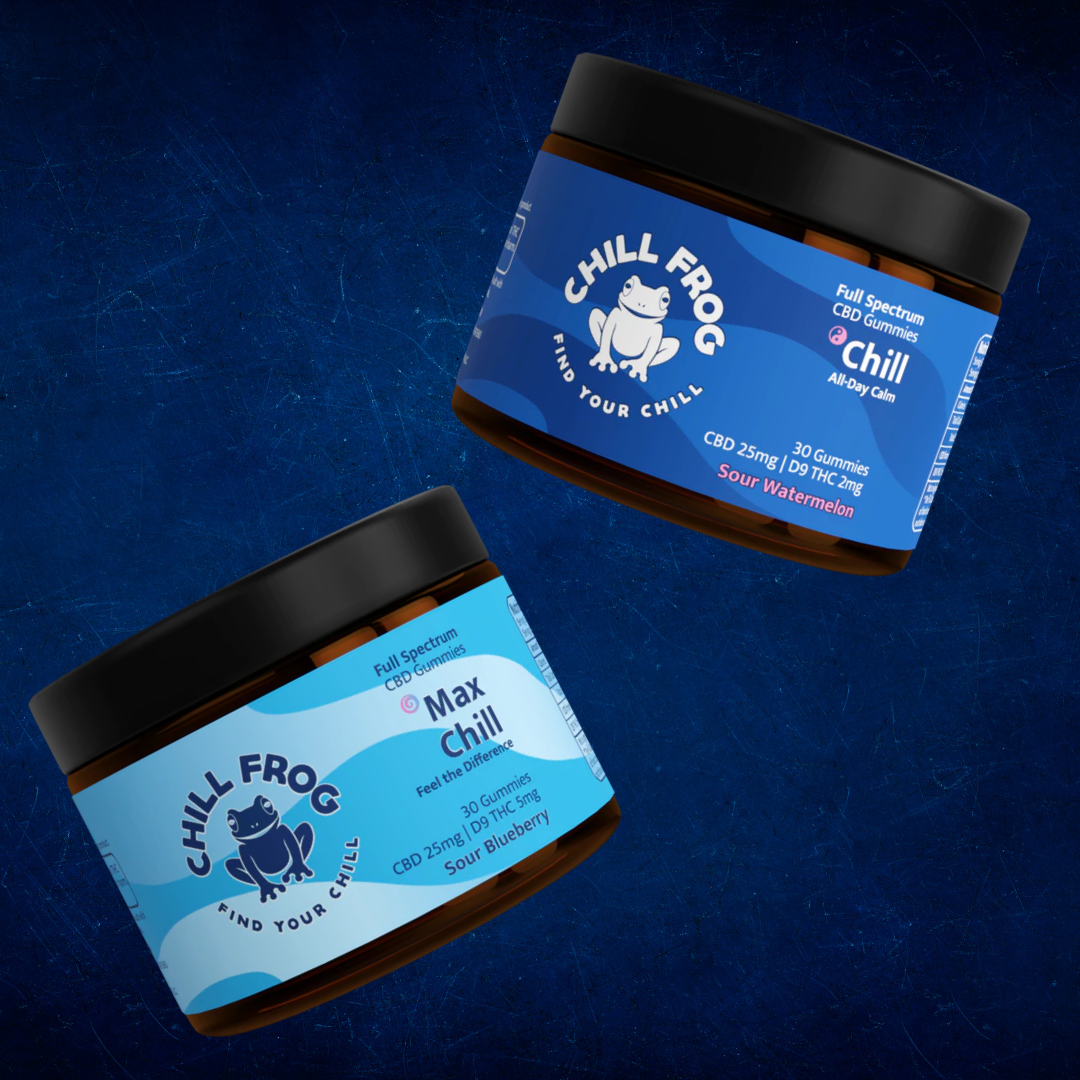Key Takeaways:
- THCV’s Anti-Suppressant Properties: THCV is sought after for its appetite-suppressing properties, making it a potential aid for weight management and reduction of excessive eating habits.
- Delta 8’s Milder Psychoactivity: Delta 8 offers a gentler psychoactive experience compared to Delta 9 THC and is known for its ability to enhance appetite, beneficial for those needing to increase food intake.
- Incorporating Cannabinoids Safely: Consulting healthcare professionals and selecting high-quality, lab-tested products are crucial steps in safely incorporating THCV or Delta 8 into a wellness routine for appetite control.
Managing appetite is essential for overall health, balancing nutrition, and maintaining energy levels. In the realm of natural solutions, cannabis compounds like Tetrahydrocannabivarin (THCV) and Delta-8-Tetrahydrocannabinol (Delta 8) stand out for their unique effects on appetite. THCV is known for suppressing appetite, while Delta 8 offers a more nuanced approach, potentially enhancing the eating experience. This guide delves into the roles of THCV and Delta 8 in appetite control, providing health-conscious consumers with the information needed to make informed decisions.
Ready To Explore Natural Relief With Chill Frog CBD?Discover the soothing power of CBD oil for pain management and embrace a more comfortable life. With Chill Frog CBD, you're choosing purity, quality, and trust.
Take the first step towards pain-free living with chill frog CBD. Explore our collection & find your relief! |
Understanding THCV: The Appetite Suppressant
Tetrahydrocannabivarin (THCV) is a cannabinoid found in certain strains of cannabis, distinct for its unique effect of suppressing appetite. Unlike THC, which is known for stimulating hunger, THCV acts in opposition, making it a compound of interest for those looking to manage their weight or reduce excessive eating habits. Its molecular structure may be similar to THC, but its effects on the body's endocannabinoid system are notably different.
How THCV Suppresses Appetite
THCV reduces appetite by blocking the action of CB1 receptors in the brain. By inhibiting these receptors, THCV can effectively diminish the desire to eat, making it an appealing option for those seeking to lose weight or maintain a healthy diet. Additionally, THCV may help regulate blood sugar levels, further contributing to its potential as a weight management tool.
Sources Of THCV
THCV is predominantly found in African and Asian sativa cannabis strains. Its presence in sativa strains contributes to the energizing and appetite-suppressing qualities often associated with these plants. It's available in various forms, including extracts, oils, and edibles, offering flexibility in how it can be incorporated into wellness routines. Breeders are also focusing on developing strains with higher THCV content, making it increasingly accessible to those seeking its specific benefits.
Exploring Delta 8
Delta-8-Tetrahydrocannabinol, commonly known as Delta 8, is a cannabinoid that shares a close chemical relationship with Delta-9-THC, the primary psychoactive component in cannabis. However, Delta 8 exhibits a lower psychoactive potency compared to Delta 9, making it an appealing alternative for those seeking milder effects. Its growing popularity stems from its ability to provide a sense of calm and euphoria without the intense high that can lead to discomfort or anxiety in some users.
Delta 8's Influence On Appetite
Unlike THCV, Delta 8 is known to stimulate appetite, which can be beneficial for individuals experiencing loss of appetite due to medical conditions or treatments. It acts on the body's endocannabinoid system to gently increase hunger, offering a potential therapeutic benefit for those who need to maintain or increase their food intake. This makes Delta 8 a versatile cannabinoid, useful not only for its psychoactive properties but also for its ability to enhance the eating experience, making food more appealing and enjoyable.
Sources Of Delta 8
Delta 8 is found in very small quantities, making extraction and isolation a complex process. However, advancements in extraction technologies have made it more accessible. Delta 8 products, including tinctures, gummies, and vapes, are becoming increasingly available, providing users with various methods to experience its unique effects. The availability and variety of Delta 8 products are expected to increase as the industry grows, offering consumers more options to incorporate this cannabinoid into their wellness and therapeutic routines.
THCV Vs Delta 8: A Comparative Analysis
Appetite Control
When considering THCV and Delta 8 for appetite control, their distinct effects become clear. THCV is notable for its appetite-suppressing properties, making it an attractive option for those looking to reduce their food intake or manage weight more effectively. On the other hand, Delta 8 tends to increase appetite, potentially benefiting individuals needing to boost their food consumption due to various health reasons.

Side Effects And Safety
Both THCV and Delta 8 are generally considered safe for consumption, with side effects typically being mild and manageable. However, individual experiences can vary. THCV users may experience dry mouth, mild anxiety, or dizziness, particularly at higher doses. Similarly, Delta 8 can cause dry mouth, eyes, and slight alterations in perception or mood. It’s crucial for users to start with low doses, especially if they are new to these cannabinoids, to gauge their body’s response.
Legal Status And Availability
The legal status of THCV and Delta 8 varies by jurisdiction, influenced by laws surrounding cannabis and hemp products. In many regions, Delta 8, derived from hemp, navigates a legal gray area, making it more accessible than THCV. Consumers interested in either cannabinoid should familiarize themselves with local regulations to ensure they are compliant with state and federal laws.
How To Choose Between THCV And Delta 8 For Appetite Control
Assessing Your Needs
If your objective is to suppress appetite and potentially aid in weight loss, THCV may be the more suitable choice. Its ability to reduce hunger can help manage caloric intake and support a diet plan. Conversely, if you're looking to stimulate appetite, Delta 8 offers a gentle way to enhance your desire to eat, making meals more appealing.
Considering Health Implications
Before incorporating THCV or Delta 8 into your routine, consider any existing health conditions and how these cannabinoids might interact with them. While both compounds are generally well-tolerated, their effects on appetite and overall mood may vary depending on individual health factors. Consulting with a healthcare professional can provide tailored advice, ensuring that your choice aligns with your health needs and medication regimen.
Consulting Healthcare Professionals
Seeking advice from a healthcare provider is especially important when using cannabinoids for specific health objectives like appetite control. A healthcare professional familiar with cannabis and its derivatives can offer guidance based on the latest research and your medical history. This step is crucial not only to ensure safety but also to maximize the potential benefits of THCV or Delta 8 in your health and wellness journey.
Potential Side Effects And Safety Considerations
Understanding The Risks
While THCV and Delta 8 offer promising benefits for appetite control among other uses, it's important to approach their consumption with an awareness of potential side effects. Commonly reported side effects for both cannabinoids include dry mouth, and temporary alterations in mood or perception. These effects are generally mild and subside on their own. However, sensitivity varies by individual, highlighting the need for caution and gradual dosage adjustments.
Navigating Legal Concerns
The legal landscape for cannabis and its derivatives, including THCV and Delta 8, is complex and varies significantly between jurisdictions. In some areas, Delta 8 might be more readily accessible due to its legal status under federal law, while THCV's availability may be more restricted. Always verify the legal status of these compounds in your location before purchasing or using them to ensure compliance with local regulations.
Ensuring Quality And Purity
Due to the relatively unregulated nature of the cannabis market, product quality and purity can vary widely. When selecting THCV or Delta 8 products, opt for reputable sources that provide third-party lab testing results. This ensures that the products are free from harmful contaminants and accurately labeled regarding cannabinoid content. Prioritizing quality and safety can significantly enhance the effectiveness and overall experience of using these cannabinoids for appetite control.

Final Thoughts
In the journey towards effective appetite control, THCV and Delta 8 emerge as noteworthy options, each with distinct benefits—THCV for reducing appetite and Delta 8 for stimulating it. The choice between them hinges on individual health objectives, underlying conditions, and a thorough consultation with healthcare professionals. With an informed approach, careful consideration of legalities, and a focus on quality, consumers can navigate the use of these cannabinoids to support their wellness goals.
Read also:
Frequently Asked Questions
What are the therapeutic benefits of Delta 8?
Delta 8 is noted for anxiety and pain relief, a sense of euphoria, and reducing symptoms of insomnia.
What are the other benefits of THCV?
THCV may also be beneficial for diabetes, reducing panic attacks, and possibly aiding in conditions like Parkinson’s disease and schizophrenia.
Are THCV and Delta 8 psychoactive?
THCV can be psychoactive at high doses, but at low doses, it may not produce a "high." Delta 8 induces a milder euphoria compared to Delta 9 THC.
How do THCV and Delta 8 compare for energy and focus?
THCV can increase energy levels and focus, likened to the effects of coffee without jitters. Delta 8 provides a calmer experience that may also aid focus.
Can Delta 8 help with sleep?
Yes, Delta 8 has been associated with relaxing effects that can aid sleep, in contrast to the stimulating properties of THCV.
What are the legal and safety concerns?
The legality of both compounds varies by jurisdiction, and while generally considered safe, long-term effects and individual reactions can vary.
Where can I find high-THCV cannabis strains?
African sativas, such as Durban Poison, are known for higher THCV content. Genetics and lab testing are key in finding high-THCV products.
How do THCV and Delta 8 affect diabetes?
THCV has shown promise in improving insulin sensitivity and regulating blood sugar levels, making it of interest for diabetes research.
Can THCV and Delta 8 help with anxiety?
THCV is believed to have anxiolytic effects without dampening emotions, and Delta 8 is known for reducing anxiety levels.
Are there any side effects?
Side effects depend on the individual and the dosage, with THCV and Delta 8 generally being well-tolerated. However, high doses of THCV may lead to psychoactive effects.
How do THCV and Delta 8 compare for recreational use?
THCV provides a clear-headed, stimulating high and suppresses appetite, while Delta 8 offers a milder, more relaxing high and can increase appetite.
Sources:
- Abioye, A., Ayodele, O., Marinkovic, A., Patidar, R., Akinwekomi, A., & Sanyaolu, A. (2020). Δ9-Tetrahydrocannabivarin (THCV): a commentary on potential therapeutic benefit for the management of obesity and diabetes. Journal of Cannabis Research, 2(1). https://doi.org/10.1186/s42238-020-0016-7
- Abioye, A., Ayodele, O., Marinkovic, A., Patidar, R., Akinwekomi, A., & Sanyaolu, A. (2020). Δ9-Tetrahydrocannabivarin (THCV): a commentary on potential therapeutic benefit for the management of obesity and diabetes. Journal of Cannabis Research, 2(1). https://doi.org/10.1186/s42238-020-0016-7
- Urits, I., Gress, K., Charipova, K., Li, N., Berger, A. A., Cornett, E. M., Hasoon, J., Kassem, H., Kaye, A. D., & Viswanath, O. (2020). Cannabis Use and its Association with Psychological Disorders. Psychopharmacology Bulletin, 50(2), 56–67. https://www.ncbi.nlm.nih.gov/pmc/articles/PMC7255842/
- Akpunonu, P., Baum, R. A., Reckers, A., Davidson, B., Ellison, R., Riley, M., Trecki, J., & Gerona, R. (2021). Sedation and Acute Encephalopathy in a Pediatric Patient Following Ingestion of Delta-8-Tetrahydrocannabinol Gummies. American Journal of Case Reports, 22. https://doi.org/10.12659/ajcr.933488
- Shi, L., Kang, S., Choi, C. Y., Noonan, B. L., Carrica, L. K., Liang, N.-C., & Gulley, J. M. (2024). Effects of combined exposure to ethanol and delta-9-tetrahydrocannabinol during adolescence on synaptic plasticity in the prefrontal cortex of Long Evans rats. Neuropharmacology, 242, 109765. https://doi.org/10.1016/j.neuropharm.2023.109765